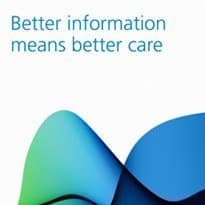Care.data campaign leaflet slammed
- 7 January 2014

A leading privacy campaigner has condemned NHS England’s £1m leaflet drop about care.data for not including an ‘opt-out’ form.
Phil Booth, co-founder of the medConfidential campaign, told EHI that the leaflet, which is supposed to inform patients about the programme and advise them that they can opt-out, said the failure to include an easy way for them to do this was “ridiculous”.
“There’s no opt-out form in the leaflet. This is ridiculous. If you’re going to send out this you have to include an opt-out form,” he said.
The leaflet drop is part of a £2m public awareness campaign being run by NHS England and the Health and Social Care Information Centre about care.data, which will expand the Hospital Episode Statistics and link them to other healthcare data sets, starting with information extracted from GP practices.
An estimated 22m homes will receive a leaflet called ‘better information means better care’ through their mail box this month. The leaflet drop was forced on the two organisations after GPs raised concerns about consent and confidentiality.
However, the bulk of the text focuses on the benefits of the new service, and the leaflet says relatively little about the right to opt-out.
It also says that patients do not want “information that identifies you to be shared” outside the GP practice should ask their GP to make a note of this in their medical records.
“If you read the leaflet you get the impression that you need to make an appointment with your doctor to opt-out. It’s appalling,” said Booth, adding that GPs were unlikely to have appointments free for such discussions, even if they felt confident talking about the new service.
Booth, who led the No2ID campaign against a British identity card, and who was involved in the initial campaign against an opt-out model for the NHS Summary Care Record, said he was also angry that the leaflets are being sent out unaddressed to households, instead of being directed to individuals.
He said this would reduce the status of the leaflets to “a piece of junk mail”, adding: “It looks like they’re trying to minimise the amount of people that opt-out.
“It’s hard to say that you can claim informed consent based on this leaflet. If this [service] is genuinely for our benefit, you would think that NHS England would bend over backwards to get this right.”
The care.data programme was approved by an Independent Advisory Group in April last year, and NHS England’s business plan, issued around the same time, said it expected 75% of practices to provide data extracts by September 2013.
However, in October this year, EHI reported that the data extractions were halted while issues around patient awareness were resolved. The solution was the publicity campaign, in which the leaflet drop that started yesterday is the first step.
Dr Geraint Lewis, chief data officer at NHS England, said in a press release that: “This initiative is about upgrading our information systems to get a more complete picture of the quality of care being delivered across all parts of the NHS and social care.”
However, GP and professor at the University of Nottingham Dr Julia Hippisley-Cox, told HSJ that she also felt some issues remained unresolved.
“I couldn’t find in the patient information sheets how patients can discover who has their confidential data or for what purpose,” she told the magazine. “We also need to be sure public benefits can actually accrue from this – that means robust and reliable analyses of data.”




